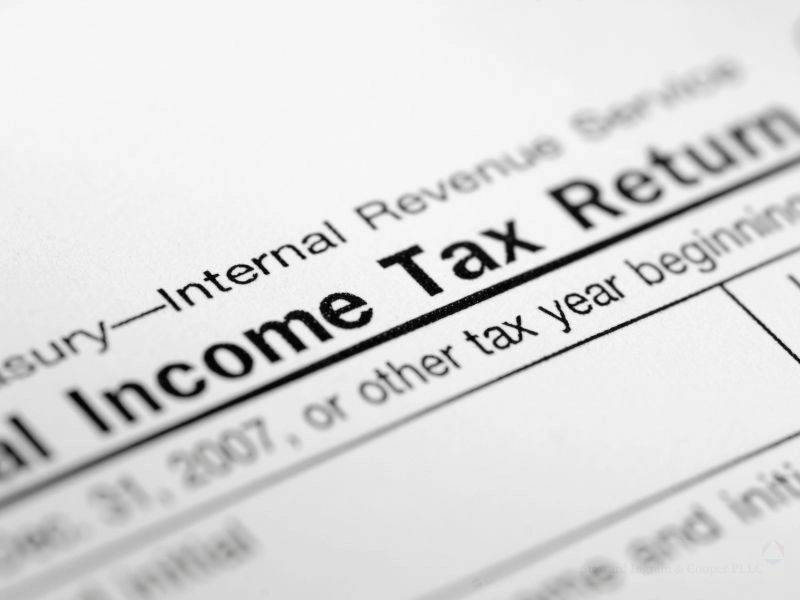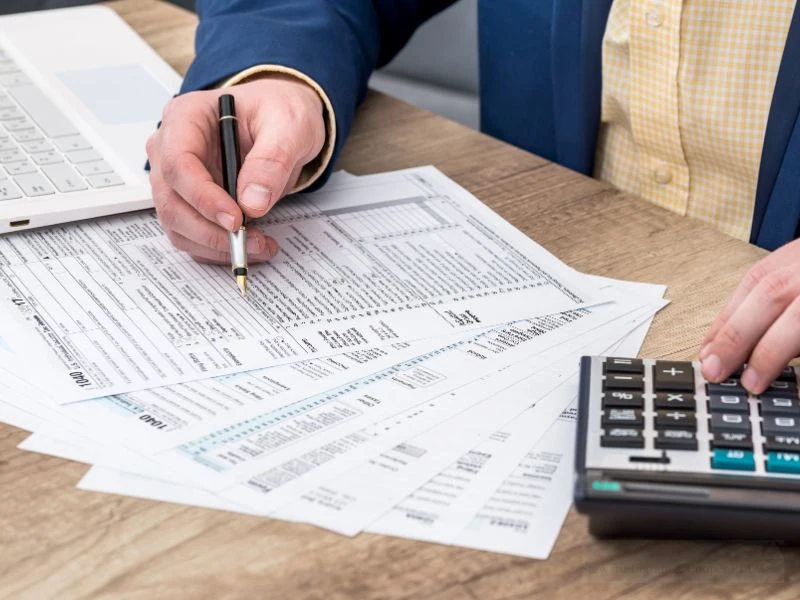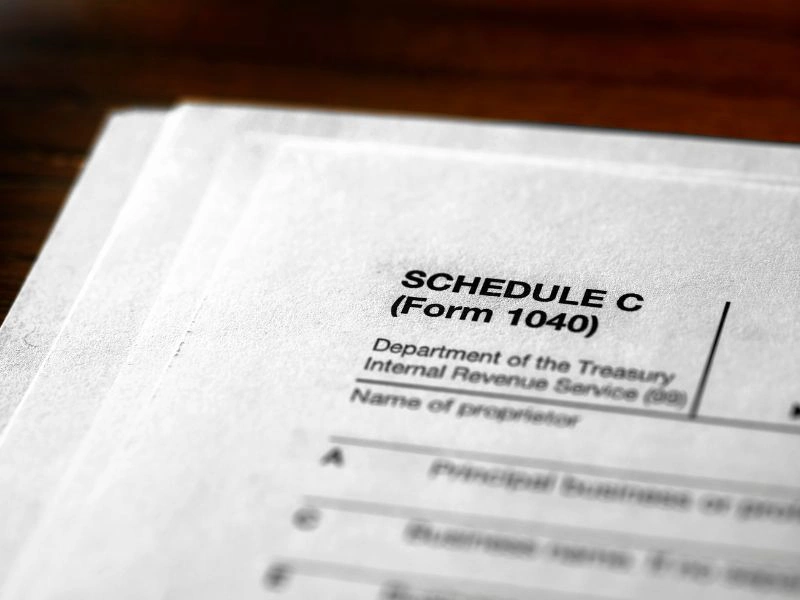Tax preparation fees aren’t one-size-fits-all. The cost depends on your tax situation, the number of required forms, and the complexity of your filing process. Join the tax planning and preparation CPAs at Steward Ingram & Cooper, PLLC, as we explore how tax preparation fees typically work, average tax preparation fees, and how to know if you’re paying more than you should.
Table of Contents
How Much Can a Tax Preparer Charge Legally?
There’s no official “cap” on tax preparer rates—but there are rules.
The IRS requires tax advisors and preparers to keep fees:
- Reasonable, based on the service provided
- Clearly disclosed before services are performed
- Not based on a percentage of your refund
The Average Cost of Tax Preparation
The average cost for tax prep depends on several factors, including the complexity of your return, the forms involved, and your preparer’s qualifications. Understanding these costs, as well as our tax fees at our Raleigh accounting firm, is crucial for effective financial planning.

As a baseline, the average tax preparation fee for a simple individual return often falls in the $250–$400 range. Once you cross into more complex filings (especially self-employment income and business ownership), tax preparation costs rise quickly.
Form 1040 with Schedule A and state return
$323
Form 1040 (standard deduction) with state return
$220
Schedule C (business income)
$192
Schedule D (capital gains)
$118
Schedule E (rental income)
$145
Schedule F (farm income)
$200
Estimated Tax Preparation Fees by Billing Method
| Pricing Structure | Typical Cost Range | Common Use Cases |
|---|---|---|
| Hourly Rate Billing | $150–$400 per hour |
|
| Basic Tax Filing (Flat Fee) | $250–$500 | Standard individual returns with minimal complexity |
| Flat Rate Return with Itemized Deductions | $400–$800 | Returns requiring Schedule A and multiple deductions |
| More Complex Flat Rate Individual Return | $500–$1,000 | Multiple income sources, additional schedules, or prior-year issues |
Note: The pricing ranges above are general estimates. Your actual cost may be higher or lower depending on your tax situation, the number of forms required, and how much time is needed to prepare and review your return.
Key Factors That Affect Tax Preparation Costs
Paying fees for filing your business taxes at tax season can vary significantly depending on several factors. Understanding what influences the fees can help you anticipate what to expect and ensure that you are charged fairly for the services you need.
Complexity of Your Tax Situation
A simple tax return with one W-2 and a standard deduction is a different world from a return with:
Examples of added complexity include:
- Multiple income sources
- Rental properties
- Business ownership
More moving parts mean more work for the preparer, which typically results in higher tax preparation fees.
Forms and Schedules
Some schedules significantly increase time, raising personal tax preparation costs.
For example:
Why these schedules increase preparation time:
- Schedule C requires detailed income and expense categorization, supporting documentation, and increased risk review
- Schedule E may involve multiple rental properties, depreciation tracking, and income allocation issues
- Schedule D involves capital gains calculations and detailed brokerage reporting
Document Organization
If your tax documents are organized and have receipts to prove tax deductions, the tax professionals you work with will spend less time sorting, categorizing, and chasing details. That helps control personal tax preparation fees and keeps business tax preparation fees from ballooning.
Required Tax Planning and Review
Required Tax Planning and Review
Some returns are straightforward to file taxes. Others require tax planning conversations because decisions affect:
Tax planning often includes:
- Tax savings strategies
- Future-year filing considerations
- Estimated tax payments
- Business formation and structure decisions
- Timing deductions for maximum impact
That extra layer of planning often means additional costs, but it can also help prevent IRS penalties or the need for costly corrections later.
Should You Use a Tax Preparation Fee Calculator?
A lot of people search for a tax preparation fee calculator, hoping for a clean number. While these calculators can be useful, especially for simple tax prep, most calculators don’t accurately price a return with:

- Multiple income streams
- Schedule C
- Rental income
- Multiple businesses
- S corporation reporting
What a Tax Prep Fee Calculator Estimates Well
- Form 1040 complexity
- Itemized deductions vs standard deduction
- Number of schedules added
What It Usually Misses
- Cleanup work
- Missing tax documents
- Corrections and amendments
- Deeper tax planning needs
- Higher review time for complex tax situations
A calculator is a good resource to give you ballpark numbers, but it’s not a substitute for a real quote.

Can You Deduct Tax Preparation Fees?
Under the Tax Cuts and Jobs Act (TCJA), tax preparation fees are no longer deductible for most taxpayers as an itemized deduction. However, some taxpayers can deduct certain preparation fees in business contexts.
Potential Deductible Tax Preparation Fees

If you have:
- Schedule C (business income)
- Schedule E (rental income)
- Schedule F (farm income)
You may be able to deduct the portion of tax preparation costs tied to those business activities. However, for most personal tax returns, the cost is not deductible.
Tax Preparation and Tax Planning Support in Greater Raleigh
Steward Ingram & Cooper, PLLC provides tax preparation and tax planning services for individuals and small business owners across Raleigh, Durham, Morrisville, and nearby communities.
We work with clients who have:
- Business income and expanding operations
- Multiple income streams
- Rental properties and investment reporting
- Ongoing tax planning needs beyond a once-a-year tax return
Our Current Fee Structure
Individual Tax Returns
A minimum fee of $900
Business Tax Returns
A minimum fee of $1,500
Advice and Tax Consulting
$300 per hour
Note: Additional costs may apply depending on the complexity of your tax situation, the number of required tax forms, and the time needed to prepare and file your taxes.
Contact Us Today for Tax Preparation Services In Raleigh-Durham
If you are a business owner or an individual with complex financials needing assistance filing your taxes, Steward Ingram & Cooper, PLLC, takes on a limited number of clients each year. To inquire about our current availability and timeline for tax prep and consulting services, please fill out the contact form below or give us a call at (919) 872-0866.
